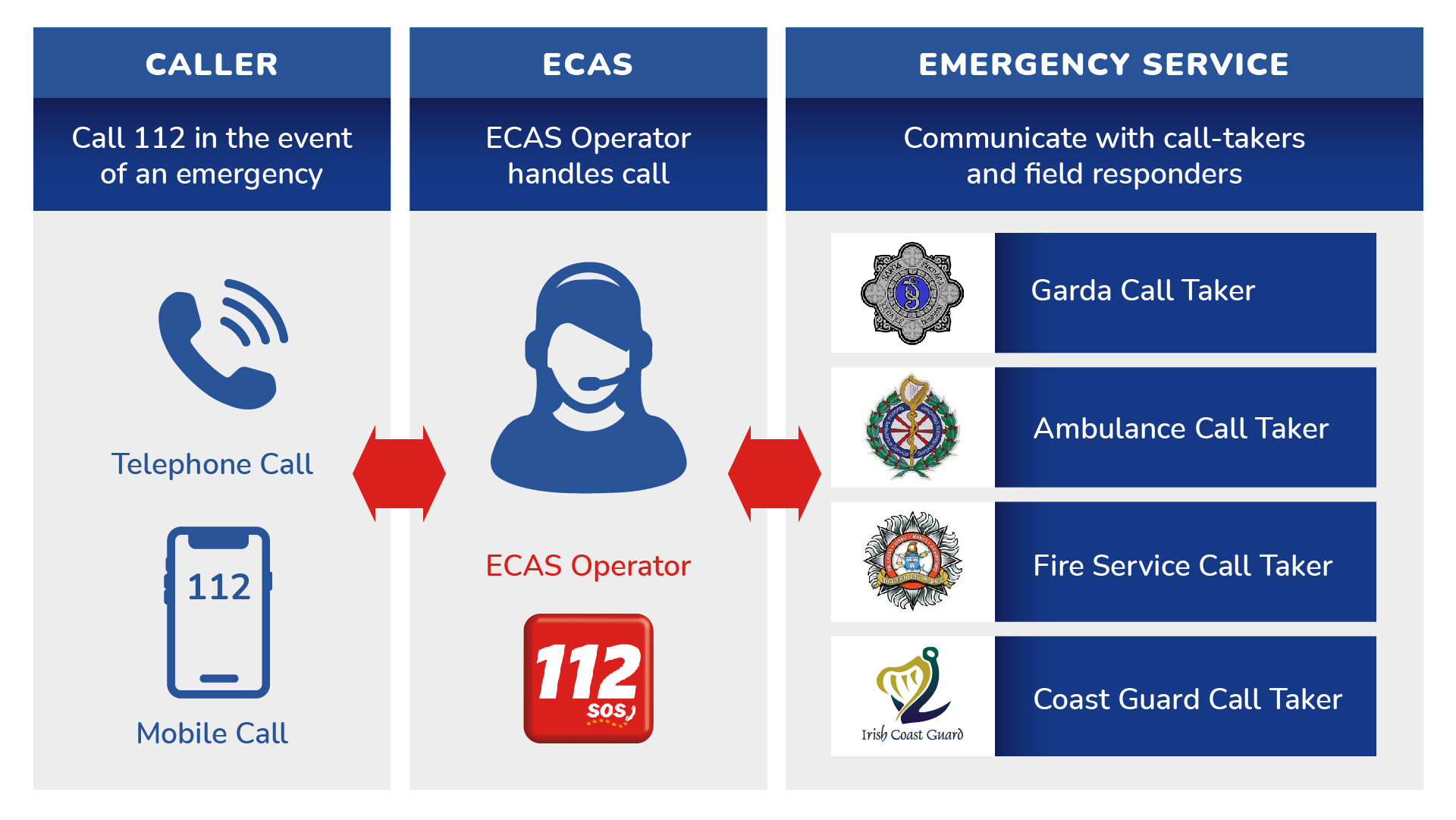What happens when you dial 112?

Ireland’s Emergency Call Answering Service is what’s known as a Public Safety Answering Point (PSAP). The specially trained Emergency Operator can connect your call to the Main Emergency Services – Garda, Ambulance Service, Fire Service or Coast Guard.
When you dial 112 or 999, your emergency call is answered by the ECAS – Ireland’s Emergency Call Answering Service.
- The Emergency Operator will ask you which Emergency Service you need.
- They will confirm which part of the country you are in (so they can connect you to the right Emergency Service).
- The Emergency Operator will then connect your call to the Emergency Service that you need and will make sure you are connected to the right service to get help.
If the Emergency Operator is busy, your call may go into a queue and you will hear a message telling you the operator is busy. PLEASE DO NOT HANG UP. If you hang up and re-dial you will just go to the back of the queue. Your call will be answered as quickly as possible and it is very unusual for callers to have to wait more than a few seconds to get answered.
There may be some incidences (for example road traffic accidents) where more than one Emergency Service is required. It is recommended that you make a judgment on which service is required by calling 112 or 999 and request this service. Once the Emergency Operator is made aware of the need for multiple Emergency Services to attend, there is a procedure in place for alerting the other services to attend the scene of the incident. There is no need to make calls to each Emergency Service one call is sufficient but make sure you advise the Emergency Operator of the need for other Emergency Services also.
One of the most important pieces of information needed is your location or the location of the incident. In some cases, the Emergency Service may know your location but don’t presume this is the case. It is quite possible that the incident is different to the callers location and so due care needs to be taken by the Emergency Service.
Depending on which Emergency Service you request, some of the typical questions that are asked are as follows:
- The telephone number you are calling from
- The exact address and Eircode if available of the incident or emergency and/or any noticeable landmarks nearby
- Directions to the scene of the emergency
- Details on the incident itself, the number of persons involved, the description of any visible injuries and knowledge of any pre-existing medical conditions
It is important to wait for the call-takers instructions, try and stay calm and don’t hang up until they tell you to.
In an Emergency situation, it is natural to try and get your message across about what happened and what help is needed as quickly as possible however the Emergency Services will usually ask for the information they need in a particular order. This may seem irrelevant to you when you are dealing with an Emergency but the order of the questions they ask have been very carefully designed to get help to you as quickly as possible.
If the Emergency Services can’t get the information they need, it makes it harder for them to help you.
Depending on the nature of the incident, it is important to keep your phone on as the Emergency Service may need to call you back and get more information. It is also important, for medical emergencies, to monitor the patient’s condition and if it changes to call back again.
- If you are calling from the street, stay with the patient.
- If you are calling from home, unlock the doors and lock up any pets.
- If the patient is known to you, try and assemble any health documentation.
- Have someone check that all the doors and windows are locked after you leave and ensure all electrical appliances are turned off.
